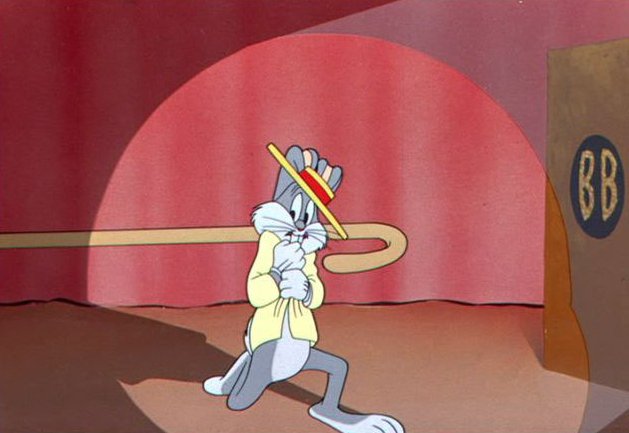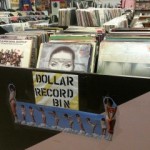Get On/Off the Stage Already!
By David A. Barber
Author of Gigging, Everything You Need to Know About Playing Gigs (Except How to Play Your Axe)
If you are a local or regional touring act there are basically two kinds of gigs you will play: There’s the play all night in the bar/restaurant kind of gig and there’s the multi-band showcase, festival or opening act kind of gig. This article is about those gigs where you’re at least opening for another act or perhaps playing the same show with three or more other bands.
The venue we work at and the majority of music venues that book original music in this region bring an average of four bands a night to play on any given night. Each band gets 30-45 minutes to play and there are 20-30 minutes between bands. Shows like this make it really important to be able to get on and off stage quickly and efficiently. The reasons behind this are important to keep in mind. If you take too long to get your gear on stage and ready to perform, then your band will likely get cut short. If you play over your time slot or take too long to get off stage, the band playing after you may get cut short. If you’re an opening act for a national or bigger local act and they get cut short, their gonna remember that and likely take an opportunity to screw you over down the road. Now sure, your band might be better than any others out there (at least from your perspective) but causing a big show to go off schedule causes headaches for everyone from the guy taking money at the door, to the booking agent, the sound guy, and even the bartenders. Yes, the crowd will complain if the band they paid big money to see doesn’t get on stage at the expected time. Your band might be awesome but if the other bands all complain to the booking guy and make his life harder and he also hears bad reports from the sound engineer and the bartenders, then how eager is he gonna be to book you back? Most local music communities are fairly small and people talk to each other. If your band gets a reputation for hogging the stage at the expense of others, you’re a lot less likely to be invited to play the cool gigs. Don’t underestimate the politics of the music scene. They can be as brutal and vicious as a Jr. High school playground.
You were hired to start and end your set at specific times, so be professional and do your best to keep to the schedule.
Ok, now that you’re clear on why you need to get on and off the stage quickly, here are some tips to help you do it:
- If you’re not the opening act, get as much of your gear unpacked and set up off to the side of the stage. Drummers should have all their hardware unpacked and set up, so they can just lift things up onto the stage and place them in position as quickly as possible. That means your cymbals should be out of the bag and on the stands. Guitar players should be ready to haul their amps onto the stage, position them and plug in. That means you should take your time and tune your guitar(s) before getting on stage so that a last-minute tuning check will go much quicker. Vocalists should be warmed up, in costume and ready help carry gear.
- If you’re not the headliner or closing act, get your gear off the stage first, then break it down. Drummers should haul the pieces off stage and then break them down and pack them up. We know you don’t want to risk cracking that new Zildjian cymbal, so be careful and make sure anyone else who touches your gear does the same, but don’t dismantle your cymbals and pack them up while still on stage.
- Don’t run off and have a smoke, piss, and flirt before you start moving your gear. You’re making life harder for everyone else playing after you, and half the staff as well.
- Recruit a couple of trustworthy (not too drunk) fans to help. Give them a free CD or put them on the guestlist as a reward for helping the band.
- Get someone else to sell your merch. There’s plenty of time for signing autographs and schmoozing after you get your gear off the stage.
Here’s a couple real-life stories:
A local jazz act with full horn section was booked to play a large street fair. The schedule was exceptionally tight with only 10 minutes between acts. That was never enough time for this jazz band who had a well known reputation for routinely taking 30-45 minutes to get onstage. This particular gig went even further south when the sound guy had trouble, causing extra delay. But the band leader didn’t help by demanding a full sound check rather than the planned line check and mix on the fly approach. (A line check only checks to make sure everything is hooked up and signals are get through to the soundboard.) By the time the band actually got to play, there was only 10 minutes left in the set. The stage manager insisted on keeping to the schedule and cut the band off after only 2 songs. The huge crowd got ugly and many complaints were registered. Thankfully, there was no violence, but it did cause a very sizable commotion. The Fair organizers ended up so embarrassed by the incident that they booked the same band back the following year on a bigger stage with a longer set time, but made it crystal clear that the band had to get on stage and playing much quicker. They actually did.
A local R&B act with a little too much attitude routinely took 45-60 minutes (sometimes even more!) to get on stage. They would take their sweet time getting on stage, then take too long to finalize the sound check and then go to the green room to change into their costumes. One time, after a delay of more than an hour, the owner of the club had to go in to the green room to get them on stage. Then, of course, they insisted on playing their full set, instead of cutting it short in order to let the headliner get on stage. As a result, the sound engineers and booking guys don’t want to work with them anymore and the headliner specifically requested that this band never opens for them again. Since the best sound guys don’t want to work with them, either, they call in some second string, less experienced guys to work and the sound is never quite as good.

 Previous Post
Previous Post Next Post
Next Post